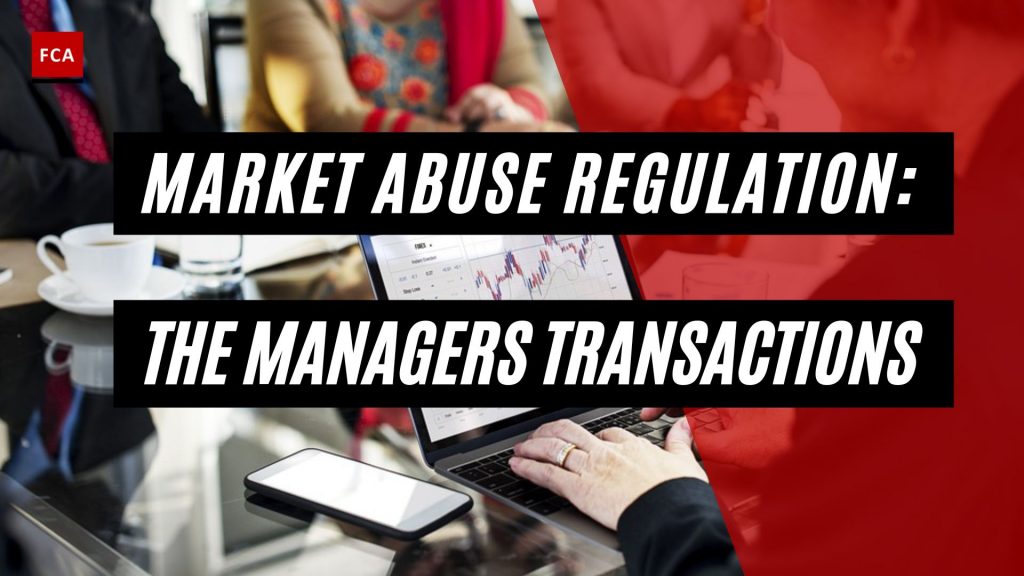Market Abuse Regulation or MAR includes rules related to the obligation on persons discharging managerial responsibilities within issuers called the Managers, and for the persons closely associated with them to notify transactions in “the issuer itself”. The employees are required to notify both, the financial market authority, and the issuer of the security about the transactions conducted on their account relating to the securities, and shares instruments.

Market Abuse Regulation: The Managers Transactions
This provides transparency concerning transactions conducted by Managers at issuers and, if applicable, by all persons closely associated with them. Notification of these transactions represents a valuable source of information for investors and helps prevent market abuse.
The requirement to notify transactions conducted on their account relating to the shares or debt instruments of that issuer or derivatives or other financial instruments linked thereto applies to the “Managers” and to persons closely associated with them at an issuer, where the issuer is registered in the Netherlands and has requested or approved admission to trading on a regulated market or has approved trading on an MTF or OTF, or has requested admission to trading on an MTF. Both the issuer and the authority are to be notified of such transactions.
Notify Obligations
The obligation to notify applies primarily to the person who is the issuer of the security, an auction platform, or an auctioneer involved who is a member of the administrative, management, or supervisory body of that entity or a senior executive who is not a member of the bodies referred to in a., who has regular access to inside information relating directly or indirectly to that entity, and who has the power to take managerial decisions affecting the future developments and business prospects of that entity.
The notifying obligation also applies to parties closely related to the persons referred to in a. or b. specifically the spouse, or a partner considered to be equivalent to a spouse, a dependent child according to local relevant law, a relative who has shared the same household for at least one year on the date of the transaction concerned.
The obligation to notify the relevant financial market authority also lies with a legal person, trust, or partnership, the managerial responsibilities of which are discharged by a person discharging managerial responsibilities.
Manager’s Transactions
Manager’s transactions may lead to a conflict of interest and should be reported to the higher authorities within the company. Following may be situations, where the Manager’s involvement lead to a conflict of interest:
Manager facilitating the executives in setting their salary and benefits, unauthorized perks/ shirking, Insider Trading, broker churning to generate commission, broker recommending high-commission funds, broker front-running customer orders are conflicts of interests. Trading assets are managed by the managers, to benefit their position or the fund adviser growing assets beyond optimal size are also a conflict of interests.
Manager allocating the IPOs to the favored clients, involved in cross-client trading, allowing one client to front-run another, or allowing one client to arbitrage against another. When the same Manager is involved with multiple lines of businesses, and facilitating more sophisticated than the others, to transfer the market wealth, at the expense of the interest of the company, using market instruments and insider information.
Final Thoughts
The regulation states that investment bankers and other employees should never benefit from material non-public information (MNPI) or make it public for the benefit of others. Companies must improve their controls to protect the market from insider trading, illegal disclosure of inside information, and market manipulation under MAR. Furthermore, companies must take full responsibility for employee legal training, controls, surveillance, and supervision in order to avoid market abuse.









